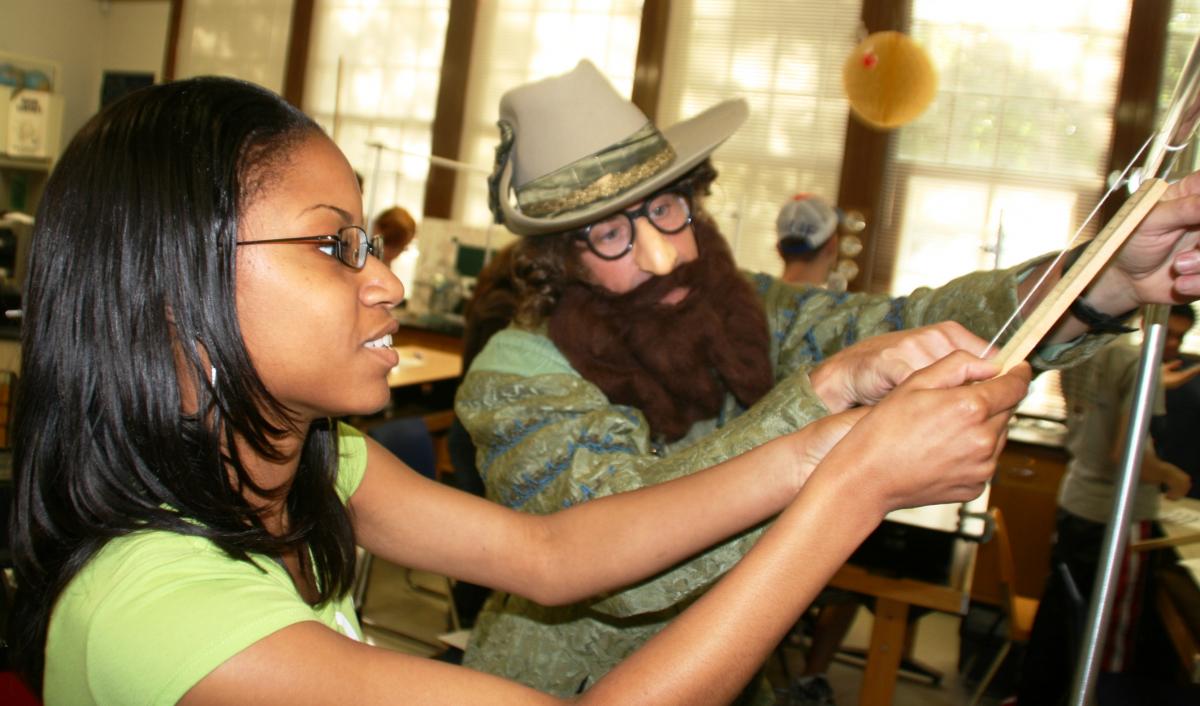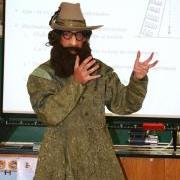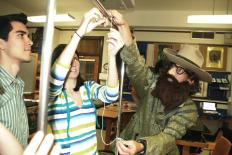


UF science education instructor Griff Jones was conspicuously “absent” from his UFTeach class on a recent fall afternoon, but co-instructor Gloria Weber found a dynamic guest lecturer to stand in for him—none other than Galileo, the Italian physicist, mathematician, philosopher and astronomer who played a major role in the Scientific Revolution. Galileo, whose career spanned the 16th and 17th centuries, led students in experiments demonstrating several of his most famous discoveries.
In photos above, from left:
(1) Dr. Jones, er, Galileo, helps UFTeach student Serenitye Massey rig her pendulum, fashioned from string and a metal washer, for a physics experiment on motion;
(2) Galileo talks (with a surprisingly Americanized Italian accent) about his many scientific contributions, which include physics theories on motion, planetary discoveries in astronomy and his controversial support for basing proofs on experimental data and mathematical evidence;
(3) Galileo helps students (from left) Guillermo Ospino and Samantha Debari measure the string length for their motion experiment.
Dr. Jones ironically returned to class just minutes after Galileo left, lamenting his missed opportunity to meet the man often called the “father of modern science.” Jones encouraged the class to follow in Galileo’s footsteps and teach their future students to discover nature through inquiry-based observations, mathematical evidence and experiments.
The UFTeach program, now in its second year, uses innovative recruiting strategies to draw UF’s best and brightest math and science majors into teaching, to help ease the critical shortage of teachers in the technical fields. The class visited by Galileo was the Step 2 course in UFTeach on “Inquiry-based Lesson Design in Science and Mathematics.”
(Staff photo and copyblock by Larry Lansford, UFCOE News & Communications)
